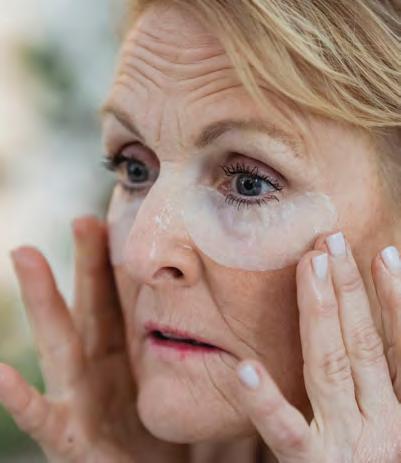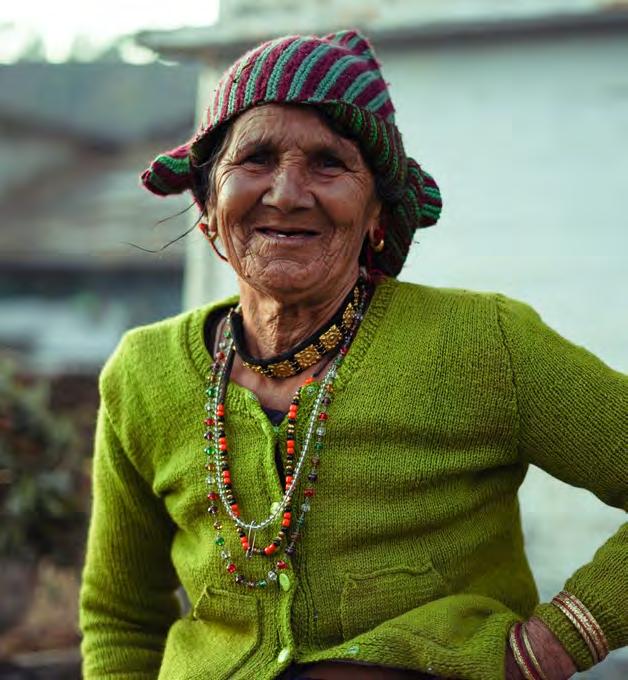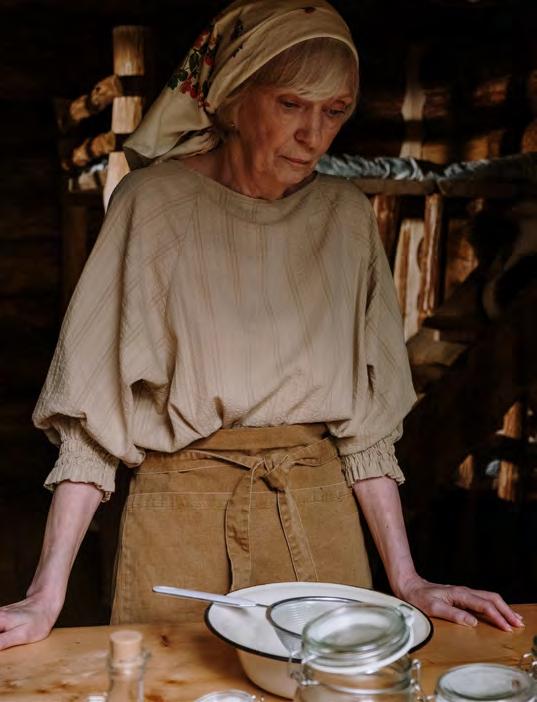
5 minute read
How to Become an Elder at Any Age
By Dana Jefferson, C.Ht., Ph.D., CAHA
I recently attended a presentation with a focus on Sun Bear’s Medicine Wheel. It was a reminder that in that tradition, we are born in the East, while our teenage to young adult years are in the South. Our adult years are in the West while we are elders in the North of the wheel. As the wheel turns from North to East again, we die, and then new life emerges.
Eldership may seem a strange choice of a “how to” article. The topic of eldership can be quite controversial especially in a culture that tends to worship youth. We have creams and Botox to get rid of wrinkles. Plastic surgeons deal with as many optional as required surgeries for those wanting bigger breasts or more sculpted abdominal muscles. There are hormones to turn back the clock. We see all the advertisements on television and in our social media feeds. It is no wonder that our view is distorted. Many are terrified about the idea of growing old with its association of decay and death. It is said that growing old is not for the faint of heart and given my many years, I think that statement holds truth. There is the old joke about how growing old beats the alternative. At my age, I sometimes fantasize about returning to the body of my younger self or picking which model or movie star’s body I’d like when I reincarnate. Despite the trials and tribulations of growing older, there can be profound beauty and wisdom in the aging process. Ancient cultures venerated and respected the wise and learned elders in their community. Watching some of the shows about Alaska, the young hunters still share a portion of their catch with the elders in their community. Elders not only had knowledge that helped with survival, but knowledge of how to handle difficult situations. It is easy to say that all this can now be found on the Internet or in a self-help book, but the amount of misinformation is mind boggling. Part of the popularity of the youth culture is the pace of technology. New gadgets and tools emerge daily that were unknown a few scant years ago. If pace and overload is all our culture has to depend on, then we may be in a heap of trouble. Let’s have more eldership in our society instead.

At a recent gathering of the Allegheny Cathedral of the Wild the theme was the flow of the river. Participants reached into a basket and blindly choose a quote about the river to provide inspiration on the nature walk. I received a quote from Scott Sabile that read, “I was still water, held by my surroundings. I am now a river, carving my own path.” This quote brought to mind one of the great benefits of true eldership, carving our own paths. Typically, we spend years worrying about the expectations of our parents or how the community will view our work or our parenting. An elder does not have the same concerns. They have learned that carving their own authentic path is not selfish. It provides a role model for others and exudes an energy of empowerment for all those crossing their path. It is not necessarily about wearing purple and eating pickles like Jenny Joseph’s poem, “Warning”. Eldership is not always about being eccentric unless you are authentically eccentric. Then, wear purple with a red hat that doesn’t match and eat three pounds of sausages without worrying about growing fat like the poem. You may be eccentric, but for you that eccentric thing might be wearing sandals in the snow or singing to the trees at a local park. For elders who are not authentically eccentric, then their outward appearance or behavior may not appear strange, but you may feel a sense of peace and understanding around them.
Becoming a crone was a great honor for me. I was also honored when one of my spiritual teachers included me as a recipient of his winter solstice writings which were only for women elders that he respected. I have facilitated croning ceremonies for women of a certain age although I remember one individual in our women’s group who did not want to receive her croning crown as she found the idea of aging terrifying. To address her concern, this article discusses how eldership can be attained without the benefit of the aging process. The idea of eldership is about maturity, wisdom, and perspective. Some older people never get there while some younger people get there sooner.



The first step in becoming an elder is having a desire to be an elder. If eldership is correlated with the cultural nightmare of growing older, why should one want to be one? For me the creation of that desire came early in life. I spent many hours with my grandmother, her sister, my greatgrandmother, and elderly neighbors. I enjoyed spending time with them. They taught me, or at least tried to teach me, everything from identifying trees to baking biscuits to developing relationships with feral cats. I loved seeing the white in their hair and the age spots on their wrinkled hands. I associated those things with emotional maturity, wisdom, and compassion. When you look at an elderly person, what do you see?



This does not mean that all old people are wise and emotionally mature. Watching the news and seeing Facebook posts from some of my high school friends is sure proof of that. Eldership does not necessarily equal age. You just need to take the first step in the process by desiring to become an elder whether you are 28 or 58.
Before I go further, it should be noted that despite my first paragraph, part of eldership is about desiring and working toward a fit and healthy body for one’s age rather than daydreaming about something that is long ago and far away. Wise elders look at their body and think, “I earned those stretch marks having beautiful children” or “That knee might never be the same again, but it hiked many gorgeous trails.” Eldership is about gaining wisdom from experiences. While the older one is, the more experiences have likely been had, that doesn’t mean that younger individuals cannot learn from their experiences. It just may be harder as the younger and more energetic one is, the less time, they may have or take to contemplate recent events and experiences, and this leads directly to step two in the process.
Taking time for basic awareness, once you desire eldership, is the next critical step. This means more than taking time for savasana at the end of yoga class or using a meditation app for minutes a day. It means being aware of your words, your actions, and your environment. It means noticing if a friend seems sad before you blurt out all the great things in your life. It means sensing if someone needs you to hold them in silence or to suggest doing a fun outing. While knowing how to handle various situations can be helped by experience, taking time to think through a situation can also work. How did a parent or trusted mentor handle a similar situation? If the tables were turned, how would you like the other person to act? American Behavioral Clinics note ten signs of emotional maturity which can apply at any age:
1. Being flexible
2. Taking ownership and responsibility
3. Knowing that they don’t know everything
4. They look for learning and growth from every opportunity
5. They actively seek out multiple points of view to inform their own
6. They stay resilient
7. They have a calm disposition
8. They believe in themselves
9. Approachability
10. A good sense of humor
Being aware of how you fit this checklist in various situations, will provide great dividends toward eldership.
WISE ELDERS LOOK AT THEIR BODY AND THINK, “I EARNED THOSE STRETCH MARKS HAVING BEAUTIFUL CHILDREN” OR “THAT KNEE MIGHT NEVER BE THE SAME AGAIN, BUT IT HIKED MANY GORGEOUS TRAILS.”



